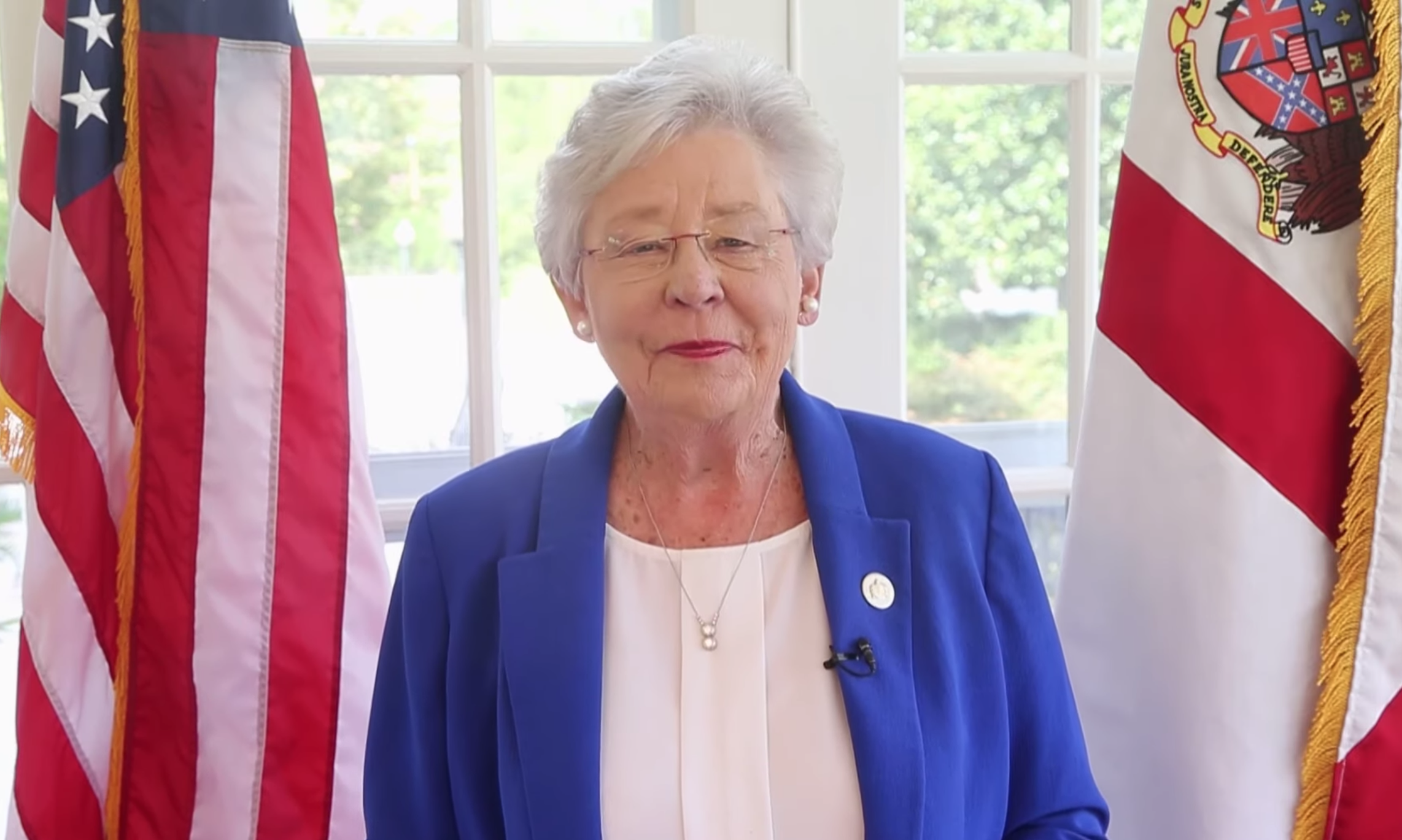Gov. Kay Ivey on Thursday announced her support for six bills that address the state’s criminal justice system, legislation that’s a product of Ivey’s study group on criminal justice policy.
“I tasked the Criminal Justice Study Group with the mission of finding data-driven solutions to our longstanding challenges in our prison system,” Ivey said in a statement. “I’m not only proud of their efforts, but I’m pleased there were solid recommendations, which came as a result of their hard work. Through these legislative items, we can build upon steps my administration has already begun taking to improve our criminal justice system.”
Those bills are:
- SB 226, by Sen. Clyde Chambliss (R-Prattville), will establish a Deputy Commissioner of Rehabilitation within the Department of Corrections (DOC), as well as within the Bureau of Pardons and Paroles. This bill will refocus these agencies toward reducing recidivism among those in the state’s custody while promoting public safety.
- SB 244, by Sen. Cam Ward (R- Alabaster), will ensure that all inmates coming to the end of their sentences undergo mandatory, pre-release supervision. A 2015 law accomplished this result for offenders sentenced after its enactment; this bill will make that statute retroactive. While reducing burdens on DOC, this bill will also improve public safety by helping inmates successfully re-enter society.
- HB 323, by Rep. Chris England (D- Tuscaloosa), will require the Department of Corrections to report more information to the Legislative Prison Oversight Committee. This bill will provide lawmakers with information to make knowledgeable decisions during the appropriation process. It will also update the Oath of Office that is taken by Correctional Officers to reflect the Department’s renewed focus on the rehabilitation of inmates.
- HB 329, by Rep. Jim Hill (R- Moody), will make retroactive the state’s existing “presumptive sentencing guidelines.” Prior to October 1, 2013, offenders were sentenced to lengthy sentences, even life imprisonment, for nonviolent crimes. This bill will allow nonviolent offenders who are currently incarcerated under the previous guidelines to be eligible for resentencing under current, presumptive sentencing guidelines if they have demonstrated acceptable conduct while in prison.
- HB 342, by Rep. Connie Rowe (R- Jasper), will provide former inmates the ability to receive a non-driver photo identification card. One of the greatest barriers of joining the workforce for those coming out of incarceration is a viable form of government identification. This bill will require the DOC and the Alabama Law Enforcement Agency (ALEA) to work together to assist an inmate in obtaining a Social Security Card, Birth Certificate and Non-Driving Photo ID prior to release from a state facility.
- SJR 25, by Sen. Bobby Singleton (D – Greensboro), will establish a study group to address uniformity and increasing access to pre-trial and diversionary programs while also looking at best practices. The study group will be made up of legislators, members of the Alabama Sentencing Commission, counties, district attorneys, judges and legal researchers.
Ivey did not express support for other policy recommendations made by her study group, however, which study group members and advocates for criminal justice reform say would free incarcerated people who, if convicted of the same crime today, would not have been sentenced so harshly.
Study group chair Champ Lyons wrote in the group’s proposals that lawmakers should consider reinstating a 2001 law that would allow some people serving life without the possibility of parole under the state’s Habitual offender Act to ask the courts for relief. Prior to the law’s repeal, so-called “Kirby motions” would let some inmates convicted of nonviolent crimes to appeal their sentences. That recommendation was not among Ivey’s.
Ivey is also working with the Bureau of Pardons and Paroles to increase access to probation officers for parolees, according to her office’s statement Thursday, and has recommended several budget increases.
Ivey suggests an increase of $4.2 million to expand prison education programs, $1.8 million to expand the Stepping Up program, a nationwide initiative to reduce the number of people with mental illnesses in jail, and an increase to hire correctional officers to meet a court order to do so. She also recommends hiring 104 additional mental health professionals for state prisons.
The U.S. Department of Justice in April 2019 released a report that found that conditions in Alabama’s overcrowded and understaffed men’s prisons is likely violating the Constitution’s Eighth Amendment prohibition on cruel and unusual punishment. State officials remain under pressure to fix Alabama’s ailing prison system or face a federal takeover.
At least the twenty-eight people serving in state prisons died in 2019 as a result from either homicide, drug overdose or suicide. The 14 prison homicides in 2019 was more than twice as many as were killed during the entire ten-year period between 1999 and 2009.
Ivey’s announcement Thursday supporting criminal justice legislation comes as ADOC staff continue to push her plan to construct three new prisons at an estimated cost of $900 million, a plan Ivey and ADOC commissioner Jeff Dunn say would increase safety for the incarcerated and prison staff and replace numerous dilapidated facilities.




















































